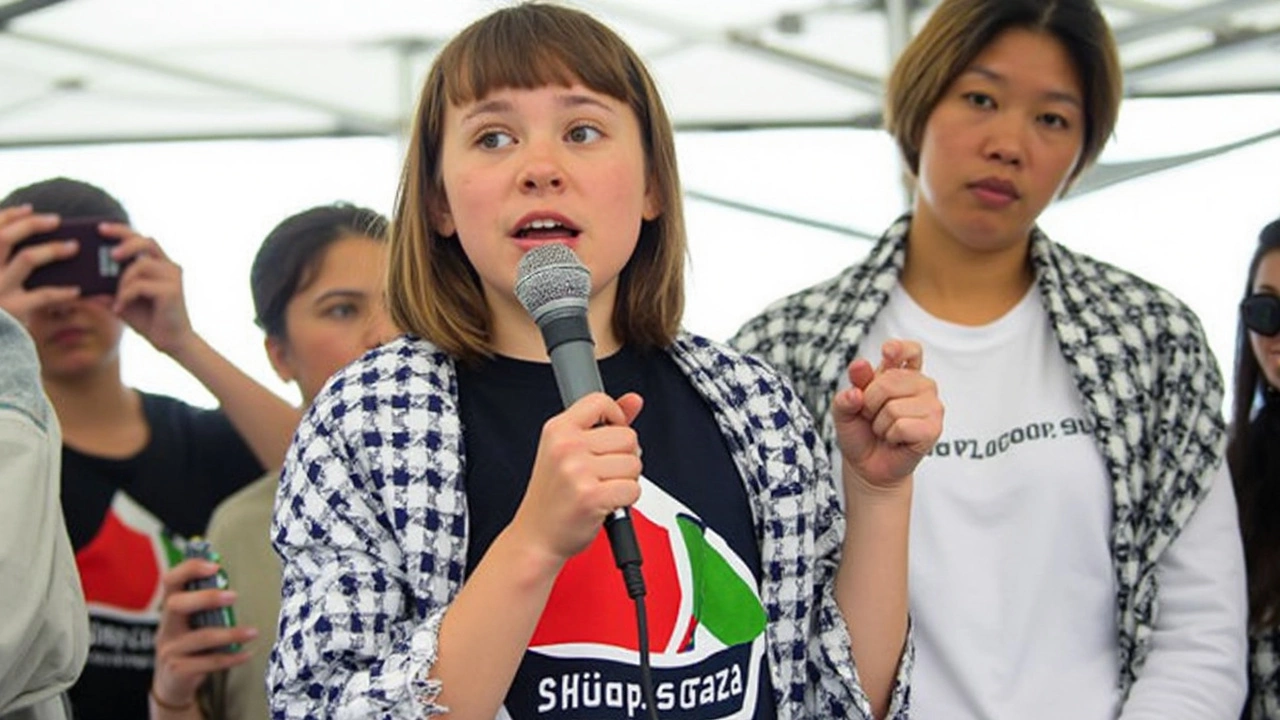Thunberg and Freedom Flotilla Set Sail for Gaza
Climate campaigner Greta Thunberg isn’t backing away from tough fights. This week, she climbed aboard the Madleen in Sicily, ready to test waters she’s never sailed before. Alongside 11 fellow activists—including actor Liam Cunningham and French-Palestinian MEP Rima Hassan—she’s pushing straight into the heart of one of the world’s most heated disputes: Israel’s naval blockade of Gaza. The ship, part of the high-profile Freedom Flotilla Coalition, loaded up with baby formula, medical kits, and other essentials before setting out for the besieged enclave. Organizers call the seven-day journey an act of ‘nonviolent resistance,’ meant to do more than just drop off supplies—they want the world watching as they try to break what they call an ‘illegal siege’, not just feed the hungry.
The atmosphere before departure was electric in Catania’s port. Thunberg, usually so composed in front of cameras, looked visibly moved. With a shaky voice, she told reporters that silence in the face of Gaza’s suffering was impossible for her. She also slammed what she called the ‘deafening’ response from world leaders to what she and her group describe as ‘genocidal acts’ in Gaza. For Thunberg, this voyage is as much about spotlighting injustice as it is about physical aid—the mission’s message is that passivity isn’t an option with lives hanging in the balance.
But organizers are careful to say this is protest, not charity. They insist the action isn’t simply about filling empty stomachs, but about exposing and challenging the politics that created those needs. The goal is to ‘break the siege’, as one organizer put it, not just write another check or show up for a photo op. The Gaza blockade has become a global lightning rod, seen by some as a lifeline for Israel’s security, by others as collective punishment for Palestinians trapped inside.
Risks, Tensions, and Global Protests
Israel argues its blockade is a hard necessity—preventing arms shipments to the militant group Hamas that runs Gaza. Israeli spokespeople firmly reject claims of genocide, blasting them as ‘blood libel.’ The Israeli navy has a history of intercepting or blocking similar ship missions and facing off with international criticism. Just last May, a previous voyage by the Freedom Flotilla barely left port before organizers reported suspected drone interference in international waters. Israeli authorities haven’t commented on this latest launch or given hints about a possible naval interception, but previous incidents have sometimes devolved into tense international standoffs.
This sea journey isn’t the only protest in motion. The Freedom Flotilla Coalition is coordinating a land-based ‘Global March to Gaza,’ hoping to draw thousands in border demonstrations that demand the crossings be reopened. Organizers want their pressure felt on every front, not just on the Mediterranean.
Everyone on board the Madleen knows this mission isn’t just a symbolic gesture. The risks are real—interception, arrest, or worse has happened before. But what drives many onboard is the sense that, with the world watching Gaza suffer and starve, sitting idly by simply isn’t an option. Expect this story to heat up as the ship edges closer to Gaza’s shore, and all eyes turn to how Israeli forces and global governments will respond to this latest act of defiance on the high seas.
